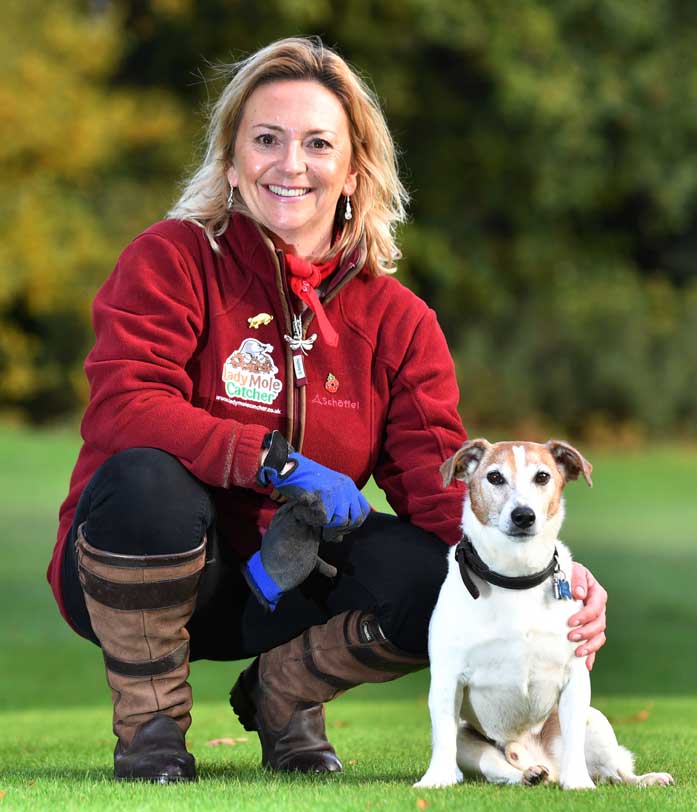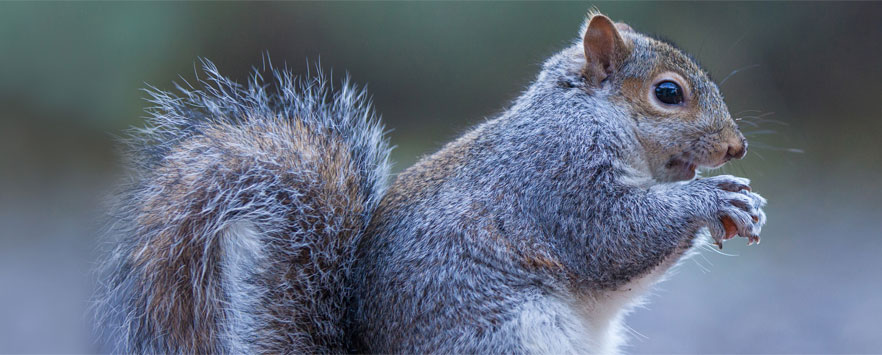Grey Squirrel control
Lady Mole Catcher is also qualified to control Grey Squirrels.
About Grey Squirrels
The Eastern Grey Squirrel (Sciurus carolinensis) is native to North America but is classed as an invasive species in the UK and Europe. Introduced to Britain by Victorian landowners during the late 1800s, grey squirrels are now thought to number around 2.5 million and have been pushing native red squirrels to the brink of extinction.
Initially considered a novelty, the grey squirrel was considered to be a “sociable, easily tamed animal”, according to the 1912 Manchester Guardian’s country diary. By the 1920s, it became apparent that the larger, more adaptable grey squirrel was increasing in number to the detriment of the native reds. In 1932, it was made illegal to release a grey squirrel in Britain – and it still is. Currently in the UK, grey squirrels have limited legal protection and can be controlled all year round by a variety of methods including shooting and trapping.
How do you know if you have Grey Squirrels on your land?
Grey squirrels are opportunistic eaters and enjoy a varied diet. They are often seen grabbing food from bird tables, lawns and gardens. They even strip bark from trees, nibble flower buds and chew stems. Famous for burying their food, grey squirrels will dig a series of holes in the ground to store a cache and enjoy at their leisure. A destructive creature, the grey squirrel is also capable of chewing through plastic and metal – including bird feeders, pipes and agricultural equipment.
Why control Grey Squirrels?
There are a few issues to consider if you discover Grey Squirrels:
- The grey squirrel causes an ongoing threat to the survival of the native red squirrel across the UK
- Grey squirrels enter roof space areas in dwelling houses and will cause considerable damage which can cost several thousands of pounds to rectify
- Damage due to bark stripping could lead to loss of vulnerable tree species and depletion of woodland habitats
- Grey squirrels often steal eggs and chicks which adversely affects wild bird populations
- Greys can also carry the squirrel pox virus which doesn’t affect them but causes suffering to native reds
- It is an offence under section 14 of the Wildlife and Countryside Act (1981) to introduce and release grey squirrels into the wild

Louise Chapman BA (Hons) PGCE
Norfolk’s very own Lady Mole Catcher®
Who I work with
- Householders in their gardens
- Farmers and Land Agents
- Outdoor Leisure Facilities
- Businesses
- Restaurants and Pubs
- Schools/Colleges
- Local Authorities
If Grey Squirrels are causing problems in your area, get in touch with Louise to arrange for a site survey or consultation. Call 01603 25 99 45 or 07876 14 11 53 or email louise@ladymolecatcher.co.uk

